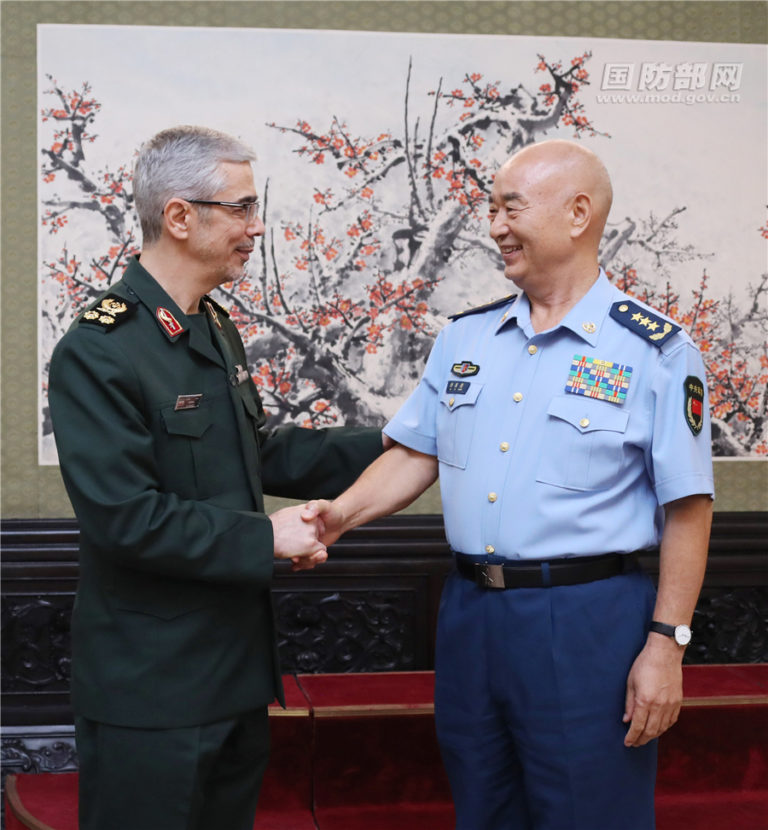The frank remarks to the media this week by Iran’s ambassador to India Ali Chegeni on the dismal state of his country’s relations with India betray frustration and despondency that the Modi government succumbed to US pressure and relegated the Iran ties to the back burner without batting an eyelid.
Tehran is pitching hard for reviving the relationship with India. The ambassador lamented that Delhi’s decision to “zero out” oil purchases from Iran and meekly submit to the US sanctions does not behoove a country like India, which has a proud history of freedom struggle.
What is really intriguing is that although the US exempted Chabahar Port from its sanctions regime, Modi government dragged its feet in the construction of the Shahid Beheshti terminal and in the execution of other affiliated projects such as the railway line connecting the port with Zahedan on the Afghan border. Did the Israel-Saudi-Emirati axis prevail upon our ruling elite to atrophy India-Iran relations? There are no easy answers.
Of course, the shocking part is that Iran is now discussing with China the link-up of Chabahar with the China-Pakistan Economic Corridor (CPEC), including an LNG pipeline, and is proceeding with the construction of the railway line to Zahedan with or without Indian input.

The Modi government, which claims to prioritise regional connectivity as a top priority in its foreign policy, was only bluffing? PM Modi himself once described Chabahar as the “golden key” for India to access Afghanistan and Central Asia. He even put one of the few dynamic ministers in his cabinet, Nitin Gadkari, as the point person to expeditiously complete the Chabahar project.
Can it be that Gadkari lost interest after an initial bout of enthusiasm, seeing the writing on the wall?
According to Ambassador Chegeni, India’s trade relations with Afghanistan are “much lower” than what they ought to be. Simply put, India seems to lack a vision in regard of its Afghan policies. The one-dimensional men who drive the Afghan policy are apparently so obsessed with the “great game” — Afghanistan as “second front” against Pakistan, etc. — that they have no interest in anything beyond spooky pastimes in the Hindu Kush.
Such short-sighted approach toward Iran, a major regional power, can come to haunt India.
Such short-sighted approach toward Iran, a major regional power, can come to haunt India. In geopolitical terms, Ambassador Chegeni’s disclosure that Tehran is discussing with China and Pakistan a link-up with the CPEC has profound implications. The emerging regional scenario is extremely worrisome.
In a recent article in New York Times, the noted American strategic thinker Robert Kaplan wrote, “Iran is the key to China’s plans, just as China’s plans are key to Eurasia’s destiny.” Succinctly put, the wholesale Chinese bailout to rescue Iran from the claws of the Trump administration stems from a long-term strategy drawn up by Chinese planners who have identified Iran as one of the most important countries in connecting Asia to Europe through the BRI.
During Chinese President Xi Jinping’s state visit to Iran in January 2016, the two countries agreed to expand trade to $600 billion over a 10-year period and to build stronger cooperation as part of a 25-year plan. According to a recent report in Petroleum Economist magazine, during the visit by Iran’s foreign minister Javad Zarif to Beijing in end-August, a “road map” was discussed and the central pillar of the new deal is that China will invest $280 billion developing Iran’s oil, gas and petrochemicals sectors, apart from another $120 billion investment in upgrading Iran’s transport and manufacturing infrastructure.
Within a fortnight of Zarif’s visit to Beijing, the Chief of Staff of the Iranian Armed Forces Major General Mohammad Hossein Baqeri began an official visit to China at the invitation of invitation of Gen. Li Zuocheng, Chief of the Joint Staff Department of the Central Military Commission.
His itinerary includes visit to a Chinese naval base. On the second day of the visit, Gen. Baqeri addressed the faculty and students of China’s National Defense University in Beijing where he was highly critical of the US’ hegemony and military interventions.
Meanwhile, a highlight of the third China-Afghanistan-Pakistan Trilateral Foreign Ministers’ Dialogue held in Islamabad on September 7 has been the agreement to explore ways to advance trilateral cooperation under the framework of BRI cooperation. The three countries will enhance connectivity, extend the CPEC to Afghanistan, and work with global partners to construct a motorway connecting Kabul and Peshawar. The “big picture” is that China, Pakistan and Iran are drawing close like at no time in their common history, and Afghanistan becomes a BRI hub.
China is already Iran’s largest trading partner and is a leading investor in the Iranian market. Around 100 major Chinese companies have invested in Iran’s key economic sectors, especially energy and transportation, construction of dams, power projects, railway construction.
According to Iranian reports, Ambassador Chegeni also said, “If India wants energy security, it should look at a stable source like Iran because of its resources, a strong government-to-government relationship, and the friendship between the two countries.”
Referring to China’s massive investment plans (as outlined in the Petroleum Economist report quoted above), he added, “We are ready to have the same agreement as with China, with India, maybe even more than that.”
Ambassador Chegeni’s remarks should be a wake-up call. Without a stable, strong and dynamic partnership with Iran, India may soon face the spectre of retrenchment in Afghanistan and Central Asia.
The saddest part is that US President Trump is open to relaxing the oil sanctions against Iran and may offer a bailout of $15 billion (roughly half of Iran’s annual income from oil exports) to coax Tehran to come to the negotiating table. In sum, the US’ maximum pressure strategy against Iran has unravelled — and PM Modi is ending up as more loyal to it than Trump himself.






